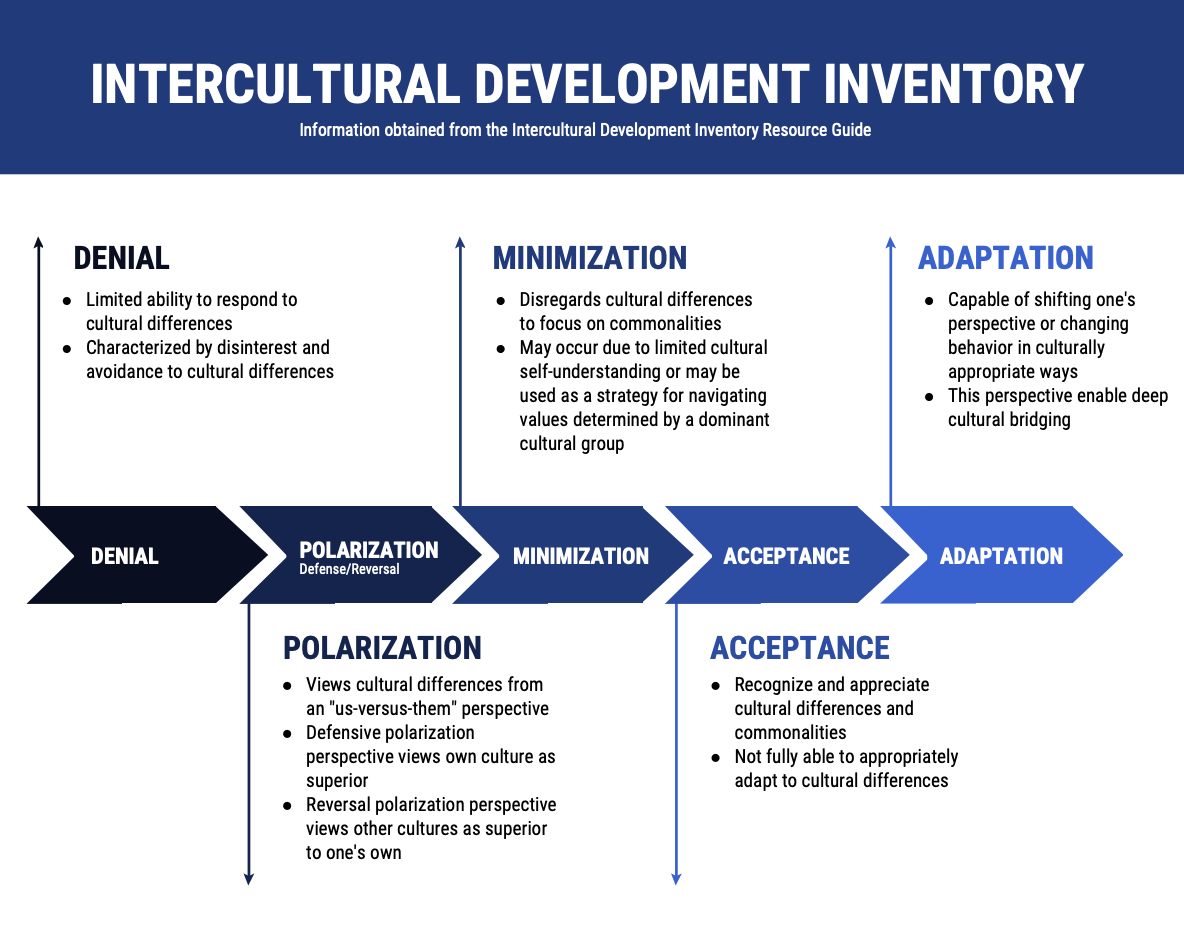In today’s fast-paced and globalized world, leadership excellence requires more than just traditional skills. A global mindset and intercultural competence are now essential traits for successful leaders. As cultures intertwine and businesses expand internationally, the ability to navigate diverse environments and build inclusive teams becomes paramount. This article delves into the remarkable benefits of intercultural development assessments and their transformative power in propelling your leadership journey towards unparalleled success.
The Significance of Intercultural Development Assessments
Intercultural development assessments are designed to evaluate an individual’s intercultural competence and their ability to navigate and thrive in diverse environments. These assessments provide valuable insights into one’s cultural awareness, sensitivity, and adaptability. By understanding and developing our intercultural competence, leaders can effectively communicate, collaborate, and lead across cultures.

Building a Global Mindset for Leadership Success
- Cultural Awareness: Intercultural development assessments raise self-awareness about our own cultural biases, assumptions, and values. This awareness helps leaders recognize and appreciate the diversity of perspectives and approaches, fostering inclusivity and cultural sensitivity.
- Adaptability and Flexibility: Leaders with a global mindset are adaptable and flexible in navigating diverse environments. Intercultural development assessments identify areas for growth, empowering leaders to develop strategies to effectively adapt to different cultural contexts.
- Effective Communication: Intercultural competence assessments enhance leaders’ ability to communicate across cultural boundaries. By understanding cultural nuances, leaders can navigate communication challenges, ensure mutual understanding, and bridge the gap between different cultural norms and expectations.
- Collaboration and Team Building: Intercultural development assessments enable leaders to build diverse and inclusive teams. By understanding and valuing cultural differences, leaders can foster a collaborative environment where diverse perspectives are respected and harnessed for innovative problem-solving and collective success.
- Global Market Relevance: As businesses expand globally, leaders with intercultural competence are better equipped to understand and respond to the needs of diverse markets. Intercultural development assessments help leaders navigate cultural differences, enabling them to make strategic decisions that align with local customs and preferences.

Transforming Leadership Practice for Unparalleled Success
- Personal Growth and Development: Intercultural development assessments provide leaders with valuable feedback to develop their intercultural competence. By embracing these assessments, leaders can continuously improve their cultural awareness, sensitivity, and adaptability—ultimately driving personal growth and enhancing their leadership capabilities.
- Organizational Success: Leaders who prioritize intercultural development foster a diverse and inclusive workplace culture. This inclusive environment attracts and retains top talent from various backgrounds, fuels creativity and innovation, and ultimately contributes to organizational success.
- Global Network and Collaboration: Intercultural development assessments help leaders cultivate a global network, engaging with individuals from diverse cultures and backgrounds. These connections provide access to new ideas, perspectives, and opportunities for collaboration, further promoting personal and professional success.
- Sustainability and Social Impact: Intercultural competence is essential for leaders to address global challenges and contribute to sustainable development. By understanding diverse cultures and perspectives, leaders can develop solutions that are culturally sensitive, socially responsible, and environmentally sustainable.
Unlocking Leadership Excellence with Intercultural Development Assessments
Intercultural development assessments are a powerful tool for leaders seeking to cultivate a global mindset and achieve unparalleled success in our rapidly globalizing world. By building intercultural competence, leaders enhance their cultural awareness, adaptability, communication skills, and collaborative abilities—all crucial qualities for effective leadership. Embrace intercultural development assessments to unlock your leadership excellence, navigate diverse environments, and build inclusive teams that drive success in today’s interconnected world.
Unlock Your Leadership Potential with Intercultural Development Assessments! Visit Equality Network to learn more about our intercultural competence assessment tools and training programs. Transform your leadership practice and stay ahead in our globalized world. Start your journey towards unparalleled success today!
FAQs
The IDI is a widely used, cross-culturally valid assessment tool for building intercultural competence, which is the capability to shift cultural perspective and appropriately adapt behavior to cultural difference and commonalities. It was created by Mitch Hammer and Milton Bennett and is based on Bennett’s Developmental Model of Intercultural Sensitivity (DMIS).
The IDI helps leaders develop a global mindset by assessing their intercultural competence, which is essential for effective leadership in a diverse world. It provides valuable insights into one’s cultural awareness, sensitivity, and adaptability, enabling leaders to communicate, collaborate, and lead across cultures more effectively.



